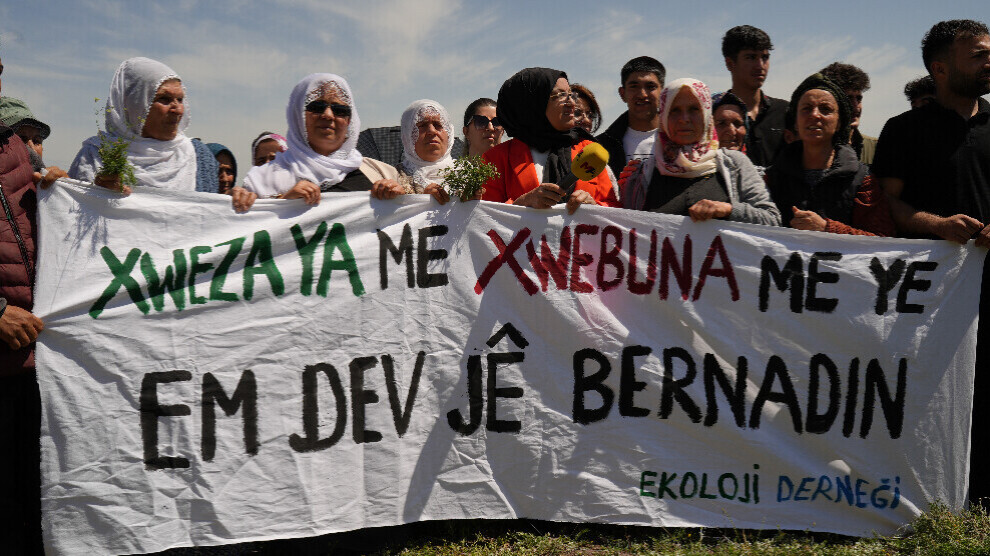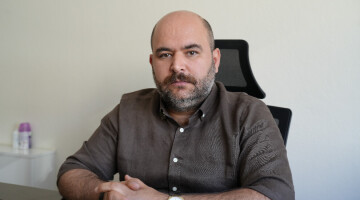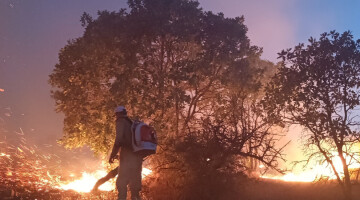In the district of Kulp in Amed (Diyarbakır) province, protests are taking place against a planned large-scale energy project: a 25-hectare solar park is to be built on communal grazing land. Residents of neighboring villages and environmental activists accuse the operator of illegally pushing through the project by manipulating an environmental impact assessment (ÇED). They are demanding that the permit be revoked immediately.
Dispute over the use of communal land
Specifically, the project concerns a pasture area jointly used by the villages of Cixsê (Ağaçlı), Xurûc (Kaynak), and Tiyaxs (Narlıca). The company VBZ İnşaat plans to build a facility there with around 30,900 photovoltaic modules and a 17 MWh lithium-ion storage facility.
Criticism has been sparked by the fact that, according to official statements, the area is meant to be “fallow land.” However, according to residents and the Diyarbakır Bar Association, it is actively used as pasture land—a crucial distinction, as land used for agricultural purposes enjoys special legal protection.
Bar association files complaint
According to the Environmental and Urban Development Commission of the Bar Association, the ÇED documentation did not show the actual area. Instead, photos of another, unused area were inserted in order to obtain a positive environmental assessment. Lawyer Berfin Kılınç, a member of the commission, stated that criminal charges had been filed against this alleged deception. At the same time, a lawsuit was filed with the 4th Chamber of the Diyarbakır Administrative Court to revoke the project approval.
Kılıç said: “These pastures are the livelihood of the local people. A project of this magnitude will pose a massive threat to traditional livestock farming. The distance to residential buildings is only 48 meters—which is also extremely problematic from a legal perspective.”
Those affected warn of displacement and environmental destruction
Resistance is also forming locally. During a protest yesterday, residents of the affected villages emphasized that they fear for their economic livelihoods and cultural roots.
Agricultural engineer Şermin Şeker (30) from Cixsê said: “This land is not just soil, it is our history, our identity. With the construction of the solar power plant, we are not only losing our pastures, but also the livelihood of our animals – and thus our own.”
Some residents believe that the plant would create heat islands, alter the microclimate, and impair the region's habitability in the long term. Criticism of the increasing industrialization of rural areas is not an isolated case, but part of a larger problem: the conversion of rural land for economic interests without sufficient consultation with the affected population.
“We won't give in”
70-year-old Hatun Demirhan expressed her concern particularly poignantly: “We are not city people. This land is our home, our livelihood, the air we breathe. Companies come here without listening to us – and want to drive us out. But we won't give in.”
75-year-old Nuriye Şeker also expressed her determination: “If the project goes ahead, everything here will die – people, animals, nature. I will fight it until my last breath.”
Legal dispute ongoing – project not halted for the time being
Despite the ongoing lawsuit and public criticism, the Ministry of Environment, Urban Planning, and Climate Change has issued a positive environmental impact assessment for the project. A decision by the administrative court is still pending. Until then, the population's hopes rest on the judiciary – and on growing public interest in the case.
What is a “ÇED”?
The Turkish procedure known as “Çevresel Etki Değerlendirmesi” (ÇED) corresponds to an environmental impact assessment. Only if the decision is positive may large-scale projects such as industrial plants, mining or solar parks be implemented. However, if the report contains incorrect information or false statements, there may be criminal and administrative consequences.















